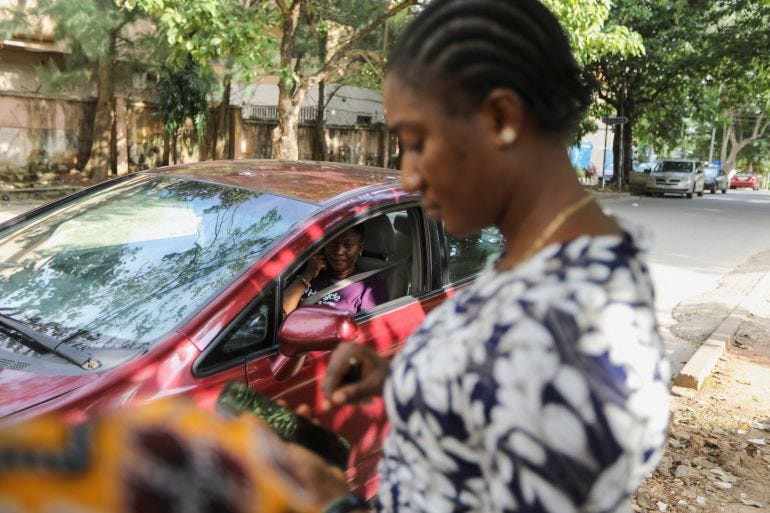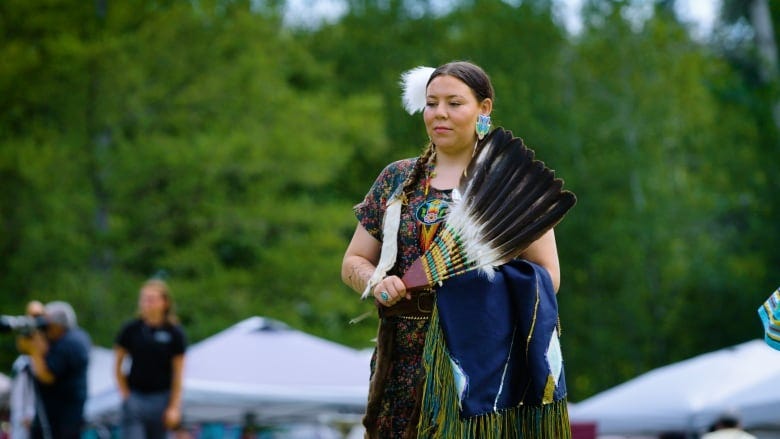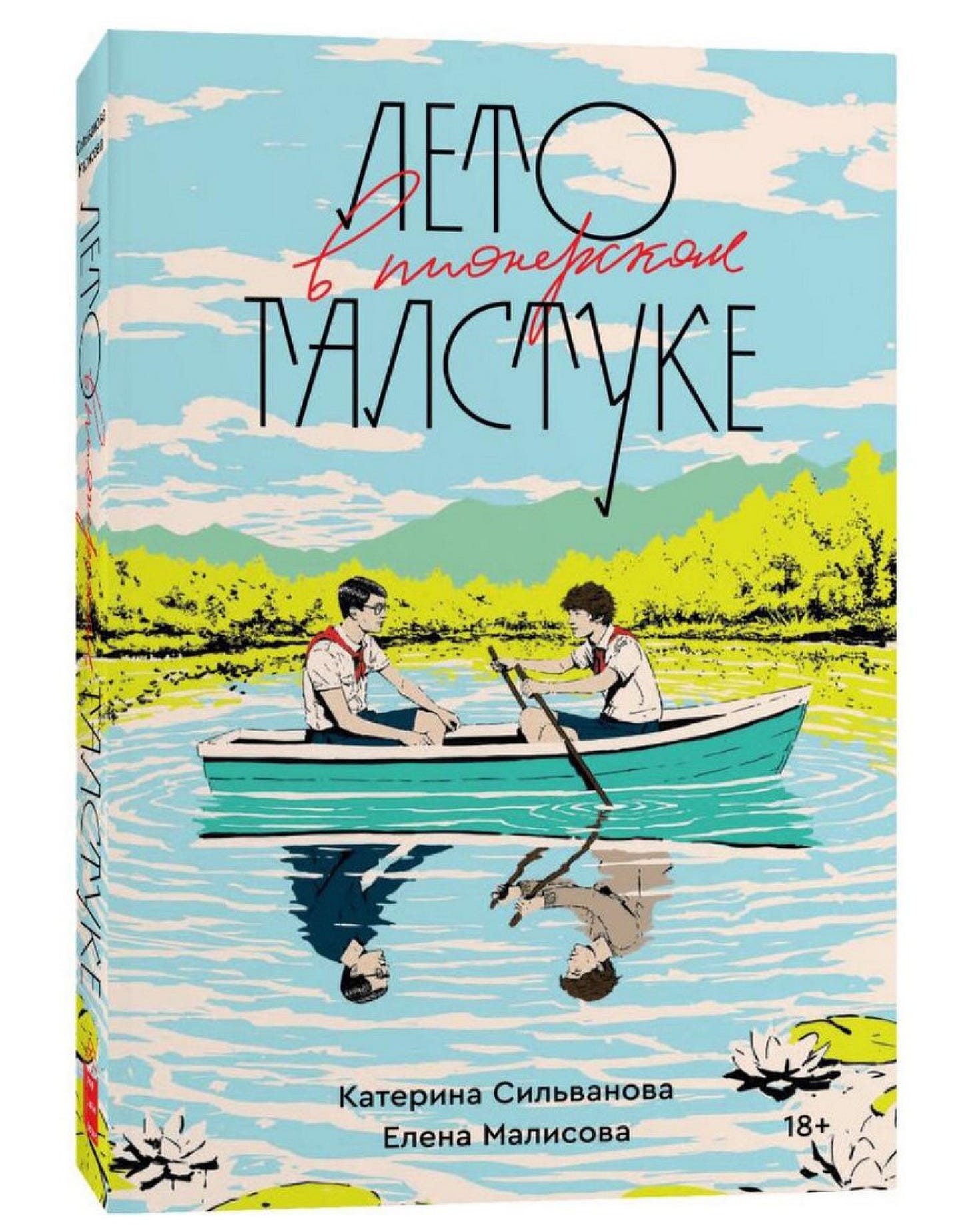Global Roundup: Argentina LGBTQ+ Community, Nigeria Women Drivers, Mi'kmaw Activist, Women’s Art in Yemen, Russia Gay Love Story
Curated by FG Contributor Samiha Hossain
Ariel Heredia, who identifies as non-binary, holds a sign that reads in Spanish: "Defend transgender quota labor law!" at a protest demanding the reincorporation of state workers who were laid off, outside the Ministry of Economy in Buenos Aires, Argentina, Friday, April 5, 2024. (AP Photo/Natacha Pisarenko)
LGBTQ+ activists in Argentina are enraged by President Javier Milei’s anti-woke agenda and worry that his government is rolling back their hard-won gains. Since drawing attention as a brash TV personality, Milei has lambasted feminist and human rights movements as a “cult of a gender ideology.”
When Luana Salva got her first formal job after years of sex work, she was ecstatic. A quota law in Argentina that promoted the inclusion of transgender people in the workforce pulled her from the capital’s street corners into the Foreign Ministry last year. Yet just months after Salva got her first paycheck, Milei entered office and began slashing public spending as part of his state overhaul to solve Argentina’s worst economic crisis in two decades. Abruptly fired in a wave of government layoffs, Salva said her world began to unravel.
The only option we have left is prostitution ... and I don’t see myself standing on a corner, getting cold, enduring violence. This government is unaware of all that has been built to make us feel included. -Luana Salva, 43
In 2021, former President Alberto Fernández’s administration passed its employment quota law, requiring the state to reserve 1% of all jobs for transgender, transexual or nonbinary people who would otherwise struggle to find formal work. Some 105 transgender people have lost their civil service jobs in the last three months, according to the union representing state workers. Trans people who benefited from the law insist each layoff has a ripple effect on Argentina’s gender and sexual minorities who remain vulnerable to hate crimes and face widespread discrimination in the labor market. In 2016, 70% of trans women reported making a living from sex work. In 2022, after the law was passed, that figure fell to 56%, according to a study released last year by Buenos Aires government officials.
Milei’s administration says the layoffs are part of its austerity program and not targeted at LGBTQ+ people. But those in the LGBTQ+ community insist the president’s populist shock doctrine disproportionately impacts them. Clarisa Gambera, a gender specialist at one of Argentina’s main labor unions, notes that many of the people affected worked in gender offices of public departments that were dismantled.
LGBTQ+ activists have fought back the way the government’s many other political opponents have — on the streets. Ariel Heredia, a recently fired nonbinary state worker, was at a protest earlier this year in Buenos Aires. After being laid off, Heredia, 36, lost health insurance he needed to access anti-HIV medication.
We obtained our rights thanks to the many warriors who gave up their lives for this cause. -Ariel Heredia
A woman looks at her phone on a pavement while a female e-hailing driver waits in a car in Abuja, Nigeria [File: Afolabi Sotunde/Reuters]
Ladies on Wheel Association of Nigeria, or LOWAN, is a close-knit group, says founder Nkechi Abiola, with members looking after each other, looking out for one another on the road, and even exchanging trade advice and secondary business opportunities. Six years ago when the association first started, there were six women in the group. Now there are some 5,000 members ranging in age from 25 to 60 – all of them women commercial drivers working across Nigeria. As their membership grows, so do the ways they support each other.
They also facilitate loans to help the 60 percent of the group’s members who do not yet own their cars, and they assist one another through a regular savings scheme. Beyond driving, members also engage in campaigns against gender-based violence and domestic abuse to raise awareness about issues women in Nigeria face.
In recent years, there has been a surge in the number of women venturing into the commercial transport business in Nigeria due to the country’s worsening economic situation. However, Nigeria remains socioculturally patriarchal and the shift has not been easy for women drivers. Some passengers even go so far as rejecting a ride as soon as they see a woman behind the wheel, because of the false assumption that women are bad drivers. Many also say they face forms of sexual harassment, assault, rejection, extortion, discrimination, and intimidation by passengers, fellow road users, and even law enforcement agents.
People, both female and male, don’t really like women driving them. Even the rate of acceptance for us as commercial drivers is low. We are still fighting for that. -Nkechi Abiola
LOWAN helps in other ways that are not strictly driving-related – such as when a member has a health emergency or another crisis. The group also runs a savings club, locally called ajo – a system whereby a group’s members contribute money daily, weekly or sometimes monthly. The money is then pooled and distributed to different members on a rotating basis.
Members are grateful for the lifeline the group of women provides. But many wish the state would step up and do more. The government should make business more conducive through impactful economic policies and the provision of grants and small-interest loans to drivers, according to driver Glory Ashiru.
Sophia Sidarous dances at a powwow in Metepenagiag, N.B. (Picture This Productions/APTN)
Picture This Productions and APTN are filming for the docuseries Warrior Up! The series profiles young Indigenous activists who are making waves across Turtle Island. One episode will feature Sophia Sidarous, a 22-year-old law student in Dalhousie, Canada. In the episode, she travels to the Tomogonops and to a traditional powwow in her home community of Metepenagiag Mi'kmaq Nation in eastern New Brunswick.
The Tomogonops holds a lot of traditional significance to Sidarous and her community. Once she became familiar with the spot, she said she felt the need to take care of it and check in periodically to be sure that the area is safe from industrial threats.
I definitely think it's important to be connected to the territory that you're on and part of that connection for me is the responsibility that comes with it. That's a really big part of how I view stewardship and how I view activism. -Sophia Sidarous
Her energy as a land defender and the sense of responsibility that Sidarous speaks about is what drew production teams to her. Stephanie Joline, an Indigenous film director from Nova Scotia, directed the episode featuring Sidarous. Joline said she is impressed by Sidarous's bravery for someone her age.
When I look at Sophia, I see somebody who has passion. She has interest in self-growth, passion for bettering her community and the larger Indigenous community, learning and educating herself. It's nice to see a young woman doing so much in the community. -Stephanie Joline
Sidarous will graduate from Schulich School of Law in Dalhousie University this month. She will be one of the youngest to graduate from the program this century. She is graduating with a specialty in Aboriginal and Indigenous law and criminal justice. Her episode of Warrior Up! will be streaming on APTN beginning June 29.
In the intricate lines of henna art, Zainab finds beauty, healing, and the power to inspire others. Photo: IOM/Monica Chiriac
Growing up in Yemen, Halima and her sister Hadija learned to weave from a young age. Hadija cannot recall her sister Halima, who is deaf, ever speaking. Over the years, their bond has grown stronger, partly due to the plight of their displacement from their home in Eritrea and partly because of Hadija’s sense of responsibility to care for her younger sister.
Halima’s hearing impairment has only motivated her to work harder, using her crafty hands to create baskets, hats, platters, and other items. Already skilled at weaving, Halima refined her abilities during a training programme organized by the International Organization for Migration (IOM) through its Women and Disability Inclusion project.
Today, Halima has taken on the role of a trainer, sharing her craft with other women, including aspiring trainers. To date, she has led several training sessions, successfully mentoring over 50 women in the art of weaving. At the beginning of her classes, she typically gathers her trainees to demonstrate techniques but also provides individual guidance to ensure they grasp each step. Halima is impressed by how quickly the women have learned to weave. “Patience is key,” she emphasizes.
Similarly to Halima, Zainab has also struggled with her disability for the better part of her life amidst being displaced. Shortly after getting married, the 30-year-old was diagnosed with severe rheumatism and became increasingly reliant on a wheelchair. Zainab fled from Al Hodeidah in Yemen along with her brothers, parents, and husband due to the ongoing conflict that displaced an estimated 4.5 million people, many of whom have experienced multiple displacements over the years. Soon after settling in the Abuzaher displacement site on Yemen’s west coast, her husband of 12 years divorced her because of her disability.
Since childhood, Zainab has found joy in crafting small items to brighten her days. To no surprise, she was thrilled to discover the vocational classes offered by IOM in henna art, weaving, sewing, and perfume-making. Over time, Zainab excelled in these skills and now leads the henna art classes. While she dreams of easier days ahead, she remains focused on her aspirations which include becoming a teacher one day.
I love being a trainer because I can actively participate in improving the lives of other women. -Zainab
Cover the book A Summer in the Red Scarf, by authors Katerina Silvanova and Elena Malisova. Photo: X@semspoiler
A Summer in the Red Scarf tells the love story between two teenage boys at a Soviet pioneer camp. Ukrainian Katerina Silvanova and her Russian co-author Elena Malisova never expected their book about two teens falling in love would be such a hit – and a reason to flee their countries.
But following its publication, author Silvanova was forced to flee to her Ukrainian hometown of Kharkiv, despite it being under Russian attack, while Malisova wound up having to begin a new life in Rostock, Germany. Their first work, A Summer in the Red Scarf, was dismissed as “perverse” in Russia, amid Moscow’s hostility towards the LGBTQ community.
It’s a simple story about two young people who discover how their friendship gives rise to feelings that they can’t explain at first, and then realise that it’s love. -Elena Malisova
The story was a runaway literary success in Russia in 2021. A fan group soon formed on TikTok. But Russian ultranationalists, fearful of the “Westernisation” of society that they see as emanating from LGBTQ themes, soon sensed it might undermine the government’s stance on homosexuality. The Kremlin forbids the portrayal of gay relationships in a positive light in front of children, so the work was published with an 18+ rating.
The state moved on to completely ban what it terms LGBTQ propaganda and is even scrutinising the classics. Those who publicly support LGBTQ rights risk persecution as extremists if they are part of a movement, which has driven many members of the queer community to flee the country. Malisova and Silvanova first fled together to Armenia in 2022 then moved on to Germany and Ukraine. Malisova is also still afraid in Germany because the Russian authorities have branded her a “foreign agent” which means she is treated as if she were a traitor.
Agitation and persecution against us began in May 2022, first in Telegram channels, then the propaganda media got involved and then the politicians too. It’s like the first witch being burned at the stake. I am absolutely certain that all this persecution of the book was artificially brought about. -Elena Malisova
Malisova and Silvanova plan further volumes in the series about the love story of Yura and Volodya, and have already published a sequel in Russia. But they were forced to write it in a rush due to the political situation. The first book is already available in German, Italian and Polish.
Samiha Hossain (she/her) is an aspiring urban planner studying at Toronto Metropolitan University. Throughout the years, she has worked in nonprofits with survivors of sexual violence and youth. Samiha firmly believes in the power of connecting with people and listening to their stories to create solidarity and heal as a community. She loves learning about the diverse forms of feminist resistance around the world.






